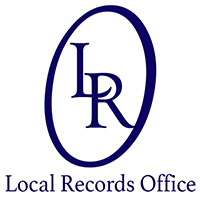11 Things You Didn’t Know About Your Homeowners Policy
11 Things You Probably Didn’t Know About Your Homeowners Policy. Is It A Scam?

Think you know everything about your home insurance policy? Is that because you understand the difference between dwelling coverage and personal liability protection? Because you know that floods aren’t covered by standard home insurance?
Think again. You might know more than most, but you probably don’t know everything about your policy — unless you’ve read the fine print and committed it to memory. And who’s got time for that? However you don’t want to find yourself stuck without coverage you thought you had. Here are some lesser known coverage nuances you likely weren’t aware of.
It’s electric
When it comes to problems caused by electricity — or lack of it — coverage varies according to the situation. Two potential issues:
- Lightning. Your house is covered if it’s struck by lightning, even if the item struck is your air conditioning unit. You will, however, still have to pay your deductible. (This is true for nearly all the situations in which you’re covered.)
- Losses caused by power failure. If lightning strikes a transformer in your neighborhood and knocks out power for several hours, you’re not covered for items ruined in your refrigerator or standalone freezer. However you could purchase extra coverage for this.
The friendly skies
When it comes to aircraft, your coverage protection can be up in air. Check out these scenarios:
- An airplane crashes into your house. If you’re at home when this happens, you’ve probably got other concerns. But yes, you are covered for damage to your home should an airplane crash into it.
- Damage to an aircraft kept on your property. If that plane is yours, is on the ground and gets damaged through vandalism, fire, a tree falling on it or any other reason, a standard homeowners policy typically won’t help with the repairs.
- A satellite crashes into your house. Every few weeks, you hear about long-dead satellites or other pieces of space debris falling victim to gravity and crashing to the ground. And if one hits your house? Yes, you typically are covered. And manmade objects aren’t the only items covered. Standard home insurance also usually covers harm to your home done by meteors.
The good earth
Of course, you’ll also find perils exclusively rooted to the ground. What if the following problems occur:
- Earthquake. Similar to floods, earthquakes typically are excluded in standard home insurance policies. If you live in an area prone to earthquakes, you’ll need to buy a separate earthquake policy. If not, any damage will be your — yes — fault.
- Volcanic ash. You’re in much better shape if you live near a volcano than near a fault line. Damage from the volcanic ash spewed during an eruption usually is covered.
- Sinkhole. Sinkholes are not covered by standard homeowners protection.
The people, yes, the people
As for manmade problems, again it depends:
- Riot. If your house is damaged by fire or vandalism during a riot, you likely are protected. Riots typically are listed as a covered peril in a standard policy. But what if there’s an …
- Explosion. The answer isn’t so simple here. If a gas line is damaged and explodes, you probably are covered. Explosions resulting from “acts of war” are excluded from coverage. Terrorist explosions? That’s a good question — one that hasn’t fully been resolved. But don’t count on your home insurance policy in such a situation.
That’s just sick
- Transmission of communicable disease. If you cause bodily injury or property damage to another person and they sue, you’re usually covered under your home insurance policy. However if you transmit chicken pox to another person, they suffer extreme illness and try to sue you for medical costs? Your insurance would not normally cover it.
What all this means is that few people besides licensed agents really understand everything that’s covered — or not covered — under standard home insurance policies. You shouldn’t guess when it comes to your home, your family and your possessions. Get the right answers from the best source.
Local Records Office | Home Policy









